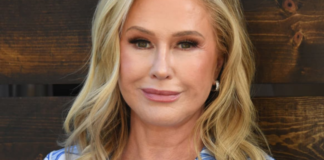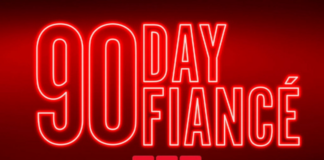Introduction to Below Deck and Its Impact
Bravo’s Below Deck is a reality television series that offers a unique glimpse into the high-stakes world of yacht crew life, illustrating the challenges and challenges faced by the crew on a luxury yacht. Premiering in 2013, the show quickly gained traction, captivating audiences with its blend of drama, interpersonal relationships, and the exotic settings of each season’s destination.
The show’s premise revolves around the day-to-day operations of a yacht, including the intricacies of catering to guests’ needs while maintaining professionalism amid various personal dynamics. It explores the interactions between the crew members, showcasing both their personal and workplace relationships. As seasons progressed, Below Deck expanded its brand, leading to spin-offs like Below Deck Mediterranean and Below Deck Sailing Yacht, further solidifying its popularity and reach within the reality TV genre.
With its mix of glamour and tension, Below Deck not only entertains but also invites viewers to witness the behind-the-scenes happenings that affect the yacht’s success. This engaging format has amassed a large and dedicated fan base, demonstrating how compelling narratives can arise from the everyday lives of the crew. However, the exhilarating nature of the show is often accompanied by controversies and scandals that have led to significant media coverage.
The impact of Below Deck on reality television is profound, as it has set a precedent for other series to follow, exploring the complexities of human interactions in confined environments. As audiences become increasingly invested in the cast members’ lives, the potential for scandal rises, leading to unforgettable moments that define the series and keep viewers coming back for more.
The Crew Dynamics: A Hotbed for Controversy
The reality television series Below Deck has captivated audiences with its dramatic portrayal of life aboard a luxury yacht. Central to the excitement of the show is the unique dynamics among the crew, which often serve as a catalyst for tension and conflict. This environment creates an atmosphere ripe for scandals, drawing viewers into the intricacies of interpersonal relationships that unfold on screen.
At the heart of the crew dynamics is the blend of diverse personalities and backgrounds, each with their own ambitions and conflicts. The high-pressure environment of yachting, combined with long hours and close quarters, can exacerbate existing tensions. For example, competition for positions, especially among stews and deckhands, may lead to jealousies that escalate into public altercations. Such conflicts not only entertain but also highlight the challenges of teamwork in high-stress situations.
Add to this mix of personalities the presence of alcohol, and the potential for scandals increases significantly. In various seasons, incidents involving intoxication have led to confrontations, breaches of professionalism, and even criminal behavior. These events have sparked nationwide conversations about the repercussions of substance use in the workplace, particularly when the workplace is as public as a reality show yacht.
Moreover, personal relationships among crew members can further complicate dynamics. Romantic entanglements often lead to unfortunate outcomes, such as favoritism or perceived bias, which in turn fosters resentment among team members. These intertwined relationships frequently serve as a narrative wellspring, impacting the crew’s overall functionality and leading to explosive moments captured on camera.
In summary, the combination of diverse personalities, high-pressure environments, and complex social interactions ultimately creates a volatile setting in Below Deck. These crew dynamics not only shape the trajectory of individual seasons but also hold the potential for showcasing some of the most notable scandals in the series’ history.
Infamous Onboard Incidents: When Things Go Wrong
Bravo’s Below Deck is renowned not only for its glamorous yacht settings and stunning locales but also for the various infamous incidents that occur onboard. These shocking moments often lead to public outrage, creating a substantial impact on both the show and its cast. One notable occurrence involved inappropriate behavior between crew members, which not only infringed upon professional boundaries but also drew criticism from both fans and former cast members. This type of misconduct can overshadow the camaraderie sought after in a team-based environment, leading to intense scrutiny about the reality of working on a luxury yacht.
Another alarming incident to consider is the demonstrated substance use by some crew members. Such behavior raises questions about accountability and the true lifestyle presented on the show. For instance, there have been moments where the crew’s reckless actions spiral into situations that jeopardize the safety and enjoyment of the guests. These incidents force the production team to intervene, potentially leading to disciplinary actions against those involved. This atmosphere not only generates headlines but also influences viewer perceptions of marine hospitality, which is supposed to epitomize luxury and professionalism.
Rule violations, too, have been frequent topics of debate among fans and critics alike. The failure to follow established protocols often leads to chaos on deck, impacting the overall experience for both the crew and their guests. From neglectful safety measures to disregarding yacht regulations, these breaches serve as stark reminders that operating in such high-pressure environments can result in tumultuous consequences. Each incident contributes to the narrative surrounding crew dynamics and the challenges they face under the watchful gaze of the cameras, highlighting the thin line between entertainment and real-world repercussions.
Love and Betrayal: Scandals in Relationships
Bravo’s Below Deck has become known not only for its luxurious yacht settings and oceanic adventures but also for the intricate and often tumultuous relationships among the crew members. This reality series frequently showcases romantic entanglements that lead to dramatic moments, reflecting both the excitement and challenges of working in close quarters with co-workers.
One of the most notable love triangles occurred in Season 3, when the attraction between Kate Chastain, Ben Robinson, and a new deckhand sparked tensions onboard. Their flirtations captivated viewers, but ultimately led to emotional turmoil as loyalties were tested. This situation magnified the show’s inherent pressure cooker environment, where romance and professional rivalry intersect. Such dramatic interplay not only provides riveting entertainment but also highlights how personal feelings can jeopardize teamwork and camaraderie at sea.
Another pivotal relationship scandal unfolded in Season 5, when relationships developed too swiftly, leading to heartbreak and conflict. The romance between charter guest and crew member created a ripple effect, leading to uncomfortable confrontations among the crew. The ensuing fallout affected the daily operations of the yacht, proving that emotions on Below Deck are rarely contained. These incidents underscore the finer line between friendship and romance within the high-stress working atmosphere of the yachting industry.
Furthermore, the series isn’t shy about exploring the darker side of love, just as showcased in Season 6, where betrayal unveiled tensions within the crew. A breakup between two primary crew members sent shockwaves throughout the yacht, showcasing the raw emotions that can emerge in the wake of a relationship ending. Such betrayals can influence not only personal dynamics on the crew, but also provide viewers a lens into the complex nature of love under the unique pressures of a reality series.
In conclusion, the romantic scandals depicted in Below Deck serve to illustrate how love and betrayal can profoundly affect personal relationships and group dynamics. As these crew members navigate the waters of passion, drama follows closely behind, making each episode a compelling narrative of vying emotions at sea.
The Drama with the Guests: Opening a Can of Worms
The reality television series “Below Deck,” which follows the lives of crew members aboard luxury yachts, is no stranger to drama, particularly when it comes to guest interactions. The dynamics between the crew and the guests often serve as a melting pot for tension, resulting in some of the most memorable and scandalous moments in the show’s history. Guest behavior has, on numerous occasions, proven to be outrageous and at times, outright unacceptable, creating scenarios ripe for conflict.
One notable instance unfolded when a group of guests engaged in excessively loud and rowdy behavior during dinner service, demanding that the crew cater to their every whim. The tension escalated when a guest made disparaging remarks about the chef’s culinary skills, igniting a battle of egos that reverberated throughout the yacht. Crew members, typically trained to maintain professionalism, found it increasingly challenging to hold their composure amid the guests’ relentless antics. This particular scenario highlights how unduly high expectations set by guests can quickly spiral into chaos, exposing the fragility of the crew’s patience and their ethical guidelines.
Another incident involved a guest exhibiting an alarming lack of respect for both the yacht and its crew. The individual repeatedly disregarded safety protocols, causing panic and prompting a stern intervention by the captain. Such scenarios exemplify the extent to which guest behavior can disrupt the delicate balance aboard these luxury vessels, ultimately leading to explosive confrontations. The irreverent demands often placed on the crew have led to numerous disputes, showcasing the recurring theme that immaturity and entitlement can transform a leisure experience into a volatile situation.
These various scandals rooted in guest interactions serve as a testament to the unpredictable nature of the hospitality industry, where the stakes are incredibly high. Each season of “Below Deck” reveals how the unpredictable actions of guests can ignite lasting, and often explosive, conflict, emphasizing the necessity for crew members to navigate these dangerous waters with grace and resilience.
Producer Manipulations: Behind the Scenes Scandals
The realm of reality television, particularly shows like Bravo’s Below Deck, often blurs the line between reality and entertainment, with producers playing a pivotal role in shaping the narrative. Producers are not mere observers; they are integral to crafting storylines that embellish the day-to-day experiences of the crew and guests on board. This manipulation extends beyond simple editing; it involves orchestrating situations that lead to dramatic confrontations and unexpected moments. The implications of such involvement can be significant, as they often breed scandalous behavior among cast members who may feel pressured to perform for the cameras.
Allegations have emerged over the years, suggesting that producers encourage conflict to elevate viewer engagement. This can involve guiding cast members on what to say or how to react, leading to an environment where authenticity is questioned. These influenced scenarios can create explosive moments that dominate discussions in the media and among fans. For instance, instances where cast members are seen engaging in behavior they later claim was encouraged or amplified by producers highlight a troubling aspect of reality TV. Cast members often find themselves caught in a whirlwind of artificial drama that detracts from their genuine personalities.
Furthermore, the psychological implications of such manipulations cannot be overlooked. With the pressure to meet producer expectations, cast members may feel they must act in ways that conflict with their true selves. This can lead to fashioning narratives around scandal that overshadow the realities of their lives, affecting their relationships on and off-screen. In the end, while producers aim to enhance entertainment value, the long-term effects on the cast and the authenticity associated with reality programming raise questions about the ethics of such practices.
Social Media Backlash: The Public’s Reaction
In recent years, social media has emerged as a powerful platform for public reaction, especially concerning reality television shows like Bravo’s Below Deck. Fans and viewers actively engage on various platforms, sharing their opinions and forming communities that can significantly influence how the cast members and the show as a whole are perceived. Controversies arising from the series have often sparked a wave of backlash on platforms such as Twitter, Instagram, and Facebook, where users express their immediate thoughts and emotions regarding unfolding events.
Notable incidents, such as the disputes between crew members or inappropriate behavior, have led to trending hashtags and viral posts, either defending or condemning participants. For instance, when a cast member faced allegations of misconduct, social media users quickly united to express their outrage, demanding accountability and calling for network action. This collective response highlights the public’s increasing intolerance for perceived injustices and misconduct in reality television.
Moreover, the repercussions of social media feedback extend beyond immediate reactions. Networks often consider online sentiment when shaping future seasons or addressing controversies. Fans have witnessed cast members being edited out of episodes or even facing termination from the show in response to public outcry. This dynamic illustrates the power of social media narratives and the speed at which they can alter a show’s trajectory.
The influence of social media also allows for the exploration of diverse perspectives on these scandals, encouraging richer conversations about behavior, ethics, and representation in media. Through trending discussions, audiences can challenge the narratives presented in the show, ultimately telling a broader story that reflects societal values. Given the interconnectedness of social media and reality television, the discourse surrounding Below Deck’s scandals serves as a case study in modern media dynamics.
Legal Issues and Backlash: The Consequences of Scandal
The Bravo reality series “Below Deck” has seen its fair share of controversies, many of which have led to serious legal implications for its cast members. With the glamour of yacht life often overshadowed by scandal, some participants have found themselves embroiled in lawsuits and legal battles that not only disrupt their personal lives but also tarnish their public image. A notable instance involved a cast member facing allegations of misconduct which prompted a lawsuit from a former crew member. Such situations demonstrate that the glitzy lifestyle portrayed in the series does not come without its darker, more complex realities.
The repercussions of these scandals often extend beyond the courtroom. Accusations can lead to negative media coverage, affecting current job opportunities for crew members and diminishing their professional reputations within the maritime industry. The backlash from incidents increases scrutiny, compelling the public to reassess how they perceive cast members. Situations such as inappropriate behavior or disputes with fellow crew members signal potential red flags for employers and audiences alike, resulting in a fragmented public image for those involved.
Moreover, some incidents have sparked social media outrage, further amplifying the fallout. Online platforms allow viewers to voice their opinions and engage in discussions, which can quickly escalate into viral hashtags and trends that perpetuate negative perceptions. This digital backlash can have a lasting impact on a cast member’s career, as sponsors and employers may distance themselves from individuals deemed controversial. The legal implications and the ensuing public outrage serve as reminders that the consequences of scandal can reverberate far beyond the initial incidents, leaving lasting marks on the careers and lives of those involved.
Conclusion: The Legacy of Scandal on Below Deck
The Below Deck franchise has become synonymous with reality television scandals, echoing through conversations about the genre. The various controversies that have erupted across seasons not only capture viewers’ attention but also shape the narrative structure of the show itself. Each scandal, from interpersonal conflicts among crew members to ethical dilemmas faced while serving high-profile guests, has contributed to the evolving identity of Below Deck, turning it into a captivating blend of luxury, drama, and human error.
Scandals such as crew firings, substance abuse allegations, and breaches of protocol have propelled Below Deck to the forefront of reality television discussions. The incorporation of these elements has not just heightened viewer engagement, but also sparked conversations about the ethical implications of reality TV. Producers and networks now face the dilemma of balancing the appeal of controversy with the potential repercussions it may entail for cast members and production standards. As audiences become increasingly aware of the ramifications of these scandals, they question the authenticity of the performances presented on screen.
Looking ahead, the future of Below Deck may hinge on its relationship with controversy. Will the franchise continue to leverage scandals as a primary draw, or will it evolve to explore deeper themes related to its characters and settings? The potential paths indicate that while controversy may be an essential ingredient in attracting viewers, there is also an opportunity to cultivate a more enriching narrative experience. Ultimately, the legacy of scandals on Below Deck reflects broader themes within reality television, emphasizing the delicate balance between entertainment and accountability. As the franchise moves forward, it will be interesting to see how it reconciles these dynamics and whether it can refine its approach to storytelling amidst an ever-critical audience.




